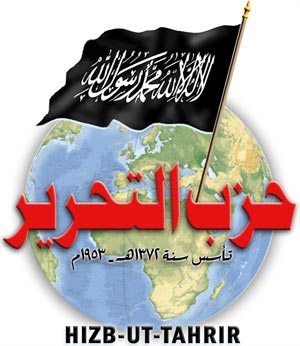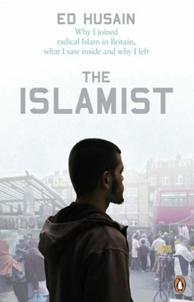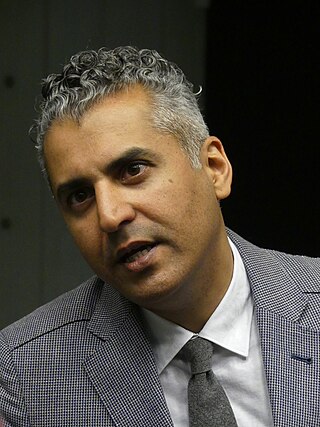The 1955 Madaba riot, sometimes also referred as the Madaba massacre took place in the predominantly Christians Jordanian town of Madaba, when a number of Christians were killed by Islamist rioters. [1]
The riot seems to have begun in a dispute between Christian and Muslim taxi drivers, after which the Salt monastery was attacked by members of the pan-islamist organization Hizb ut-Tahrir, eventually transforming in into an all-out sectarian riot. [1] It is claimed that the event was instigated by the Muslim Brotherhood and Hizb ut-Tahrir. [1] It was also claimed that a Jordanian Parliament Member, Muhammad Salim Abu al-Ghanam, was behind the eruption of the riot. [1]
Wide-scale anti-Hashemite riots took place the same year in December, lasting for five days. Those came as a result of an attempt to bring Jordan into the Baghdad Pact. The riots were severe – foreign consulates were attacked and many people were killed and wounded throughout the country. [2] The riots were quelled only with the military intervention of the Arab Legion and imposition of a curfew. [3] As a result of the riots, the Majali government fell and the introduction of Jordan into the pact was cancelled. [2]
Omar Bakri Muhammad is a Syrian Islamist militant leader born in Aleppo. He was instrumental in developing Hizb ut-Tahrir in the United Kingdom before leaving the group and heading to another Islamist organisation, Al-Muhajiroun, until its disbandment in 2004.

Hizb ut-Tahrir is an international pan-Islamist and Islamic fundamentalist political organization whose stated aim is the re-establishment of the Islamic caliphate to unite the Muslim community and implement sharia globally.

Al-Muhajiroun is a proscribed terrorist network based and banned in Saudi Arabia and active for many years in the United Kingdom. The group was founded by Omar Bakri Muhammad, a Syrian who previously belonged to Hizb ut-Tahrir; he was not permitted to re-enter Britain after 2005. The organisation has been linked to international terrorism, homophobia, and antisemitism. In its September 2002 conference "The Magnificent 19", it praised the September 11, 2001 attacks. The network mutates periodically so as to evade the law; it operates under many different aliases.

Muhammad Taqi al-Din bin Ibrahim bin Mustafa bin Isma'il bin Yusuf al-Nabhani was a Palestinian Islamic scholar who founded the pan-Islamist and fundamentalist organization Hizb ut-Tahrir.
Akromiya is an Islamist organization founded by Akrom Yo‘ldoshev.
Dilpazier Aslam is a former trainee journalist with The Guardian. He came to public attention in July 2005 when he lost his position with the newspaper after being named as a member of the Islamist group Hizb ut-Tahrir. The Guardian was alerted to Aslam's membership in the group by bloggers who read Aslam's 'Comment' op-ed article on the 7 July London bombings. Entitled "We Rock the Boat," the 13 July article discussed the attitudes of young British Muslims and how their increasing anger over perceived injustices contrasted with their elders' silence.
Zeyno Baran is a Turkish American scholar on issues ranging from US-Turkey relations to Islamist ideology to energy security in Europe and Asia. She was the Director of the Center for Eurasian Policy and a Senior Fellow at the Hudson Institute, a think tank based in Washington, D.C. From January 2003 until joining the Hudson Institute in April 2006, she worked as the Director of International Security and Energy Programs for The Nixon Center. Baran also worked as the Director of the Caucasus Project at the Center for Strategic and International Studies from 1999 until December 2002.
Hizb-an-Nusra is an Islamist organization which the Uzbek government considers to be terrorist in nature that has operated in Uzbekistan since 1999. It was founded by Mirzazhanov Atoyevich. Members of Hizb ut-Tahrir, an international organization dedicated to establishing a unified Islamic state across the Muslim world, created Hizb-an-Nusra in Tashkent out of dissatisfaction with Hizb ut-Tahrir's inability to overthrow the Government of Uzbekistan.
Terrorism in Tajikistan stems largely from the forces of the political opposition who opposed the comprehensive peace agreement that ended the civil war in 1997. President Emomali Rahmonov and UTO leader Said Abdullah Nuri signed the agreement on 27 June, believing it would bring an end to hostilities. However, dissident Islamist militants led by Tohir Yo‘ldosh and Juma Namangani formed the Islamic Movement of Uzbekistan in 1998, allying with Al-Qaeda and vowing to unite Central Asia as an Islamic state. The latest terror attacks took place in the Qabodiyon District on November 6, 2019, when a policeman and a border guard were killed by several Islamic State militants. 15 terrorists were also killed.
The threat of terrorism in Kazakhstan plays an increasingly important role in relations with the United States which in 2006 were at an all-time high. Kazakhstan has taken Uzbekistan's place as the favored partner in Central Asia for both Russia and the United States. Kazakhstan's counter-terrorism efforts resulted in the country's 94th ranking among 130 countries in the 2016 Global Terrorism Index published by the Institute of Economics and Peace. The higher the position on the ranking is, the bigger the impact of terrorism in the country. Kazakhstan's 94th place puts it in a group of countries with the lowest impact of terrorism.
Wassim Doureihi is a prominent member of Hizb ut-Tahrir in Australia, a global Islamic political party that advocates the re-establishment of the Caliphate in the Muslim world. He is a spokesman for the organisation.
Ata Bin Khalil Abu al-Rashtah is a Palestinian Islamic jurist, scholar and writer. He is the global leader of the Islamic fundamentalist political party Hizb ut-Tahrir. He came to prominence in Jordan during the Gulf War and was a critic of Iraq's invasion of Kuwait.

The Islamist: Why I Joined Radical Islam in Britain, What I Saw Inside and Why I Left is a 2007 book about Ed Husain's five years as an Islamist. The book has been described as "as much a memoir of personal struggle and inner growth as it is a report on a new type of extremism." Husain describes his book as explaining "the appeal of extremist thought, how fanatics penetrate Muslim communities and the truth behind their agenda of subverting the West and moderate Islam."

Maajid Usman Nawaz is a British activist and former radio presenter. He was the founding chairman of the think tank Quilliam. Until January 2022, he was the host of an LBC radio show on Saturdays and Sundays. Born in Southend-on-Sea, Essex, to a British Pakistani family, Nawaz is a former member of the Islamist group Hizb ut-Tahrir. His membership led to his December 2001 arrest in Egypt, where he remained imprisoned until 2006. While there, he read books about human rights and made contact with Amnesty International who adopted him as a prisoner of conscience. He left Hizb-ut-Tahrir in 2007, renounced his Islamist past, and called for a secular Islam. Later, Nawaz co-founded Quilliam with former Islamists, including Ed Husain.

Hizb ut-Tahrir America is a separate, but linked entity to the international pan-Islamist and fundamentalist organization that seeks to establish a global caliphate governed under Shariah law. Under this caliphate, members work toward uniting all Islamic countries as well as transforming secular, host countries into Islamic states. Hizb ut-Tahrir America's goals are the same as the global organization – the installation and implementation of sharia law as the sole source of law.

Hizb ut-Tahrir is an international pan-Islamist and fundamentalist political organisation. The organisation is considered a "radical Islamic group" and has come under scrutiny from the Australian government.
Shiraz Maher is a British writer and analyst, and Director at the International Centre for the Study of Radicalisation and Political Violence (ICSR) at King's College London. He also teaches at Johns Hopkins University. The son of Pakistani immigrants, for several years after 9/11 Maher was a member of the Islamist organisation Hizb ut-Tahrir, but left the movement after the 2005 London bombings and became an outspoken critic of radical Islam. He has written for leading newspapers in Britain and elsewhere, produced reports and studies on counterterrorism strategy, and appeared in the international news media as a commentator on jihad and radicalisation.

Hizb ut-Tahrir Britain is the official name of the United Kingdom branch of Hizb ut-Tahrir, a transnational, pan-Islamist and fundamentalist group that seeks to re-establish "the Islamic Khilafah (Caliphate)" as an Islamic "superstate" where Muslim-majority countries are unified and ruled under Islamic Shariah law, and which eventually expands globally to include non-Muslim states such as Britain. The group was designated a proscribed terrorist organization in the UK in January 2024.

Hizb ut-Tahrir is a pan-Islamist and fundamentalist group seeking to re-establish "the Islamic Khilafah (Caliphate)" as an Islamic "superstate" where Muslim-majority countries are unified and ruled under Islamic Shariah law, and which eventually expands globally to include non-Muslim states. In Central Asia, the party has expanded since the breakup of the Soviet Union in the early 1990s from a small group to "one of the most powerful organizations" operating in Central Asia. The region itself has been called "the primary battleground" for the party. Uzbekistan is "the hub" of Hizb ut-Tahrir's activities in Central Asia, while its "headquarters" is now reportedly in Kyrgyzstan.

Hizb ut-Tahrir is an international pan-Islamist and fundamentalist organisation which also has a national outfit in Bangladesh. The organisation was banned by the Government of Bangladesh under the Anti-Terrorism Act. It is affiliated with its international counterpart, Hizb ut-Tahrir, and the regional branch, Hizb ut-Tahrir Central Asia.